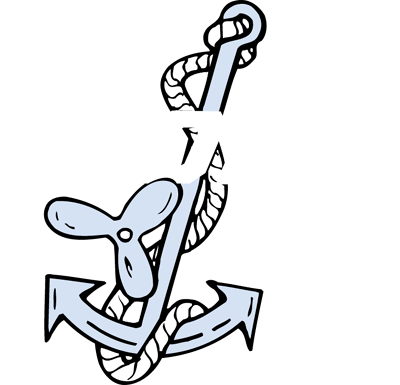Coast Guard’s Pro Bono Program Leaves Serious Questions Unanswered
In a letter dated May 15, 2014, and addressed to the Chair of the Maritime Law Association’s Young Lawyers Committee, Coast Guard Chief Administrative Law Judge Walter J. Brudzinski announced that the Commandant is sponsoring the establishment of a network of attorneys to whom mariners facing a Coast Guard license action can turn to for pro bono legal assistance. In company with that announcement, the Coast Guard issued a notice titled: “USCG S & R Proceedings – Free Legal Representation List”. That list has been updated several times, the latest of which is dated 10/17/14, and which contains the names of attorneys in fourteen states.
The premise of this program is the undisputed fact that, unfortunately, many mariners: do not have license insurance; are not provided license defense benefits by their employer or union; or cannot afford legal representation. The office of the Commandant should be commended for recognizing this widespread need, and for reaching out to attorneys and to mariners in an effort to address the problem. But for the time being, the applause should stop there.
That is because there is a very large flaw with the plan, at least as originally conceived and portrayed in Judge Brudzinski’s letter. The letter says that a Notice about the program, along with a list of participating attorneys, will be sent to the mariner, but only AT THE TIME OF the “initial pre-hearing teleconference.” As license defense attorneys know, that “teleconference” does not occur until AFTER the Coast Guard has filed its Complaint, and until AFTER the Respondent has filed an Answer. In other words, mariners who the Coast Guard now recognizes need the legal assistance of an attorney to defend their licenses, their livelihoods, and their rights, will still have to represent themselves while dealing directly with a Coast Guard IO after the incident, and also while preparing and filing their Answer and their Defenses, the very time period – by the way – which is probably the most critical stage of the litigation, AND the phase in which an unrepresented mariner is probably MOST LIKELY to prejudice his or her rights and defenses. And while it would probably be the case that the assigned ALJ would, at the pre-hearing teleconference, willingly grant the motion of the mariner’s pro bono attorney for leave to file an amended Answer and to assert appropriate defenses, it may by that time be too late to help the mariner. Again, as noted above, the most troubling aspect of this “delayed representation” project is the very real prospect that, without early advice of counsel from the very outset, the as yet unrepresented mariner will be contacted directly by the Coast Guard IO, may be called upon to give a written statement (beyond just the required 2692) and/or as frequently occurs, may be asked to attend a meeting with two or three Coast Guard investigators (at the friendly confines of the local Coast Guard station), where the interview will be recorded. During all of this, under the Coast Guard’s new pro bono program, the mariner will still be UNREPRESENTED, and in freely participating (believing, as many do, that such cooperation will help their case), the mariner may unwittingly make admissions or otherwise prejudice the case so severely that the only recourse left, after assignment of pro bono counsel, will be to accept the Coast Guard’s settlement proposal.
In fact, the possibility that that point is tacitly understood by the Coast Guard has already been raised. At the MLA Young lawyers’ meeting referred to above, one of the lawyers in the MOPS Network reported overhearing a conversation in which an ALJ said, words to the effect of: most (meaning mariners) only need counsel to advise them on their settlement with CG (seeming to imply guilt before trial). Living as we do, in the post-ALJ scandal era, the Coast Guard cannot afford any further stains on the integrity of its ALJ system. If the Commandant, and the office of the Administrative Law Judges, are sincere in their expressed purpose of ensuring that mariner-respondents “understand the nature of the allegations against them, are informed of the applicable law, and advised of the opportunities to protect their interests and the consequences of failing to do so” (to quote CALJ Brudzinski’s May 15, 2014 letter), then mariners must be told about the opportunity for pro bono representation by the IO, at the outset, before they are told about anything else. Even giving them the Notice and attorney list with the Complaint may be too late, as many mariners have, by that time, already spoken at length with an IO, WITHOUT representation. The Coast Guard’s currently-conceived pro bono program may, in the end, serve only to help the Coast Guard grease the wheels under its settlement agreements, while permitting the Coast Guard to pay lip service to the legal rights of mariners. Until the Coast Guard is willing to accept the consequences of advising mariners of the right to pro bono representation AT THE OUTSET, and BEFORE any statements or interviews are conducted by its IO’s, the program will not adequately serve to protect the legal rights of mariners, and the Coast Guard should not receive any credit for effectively doing so.
